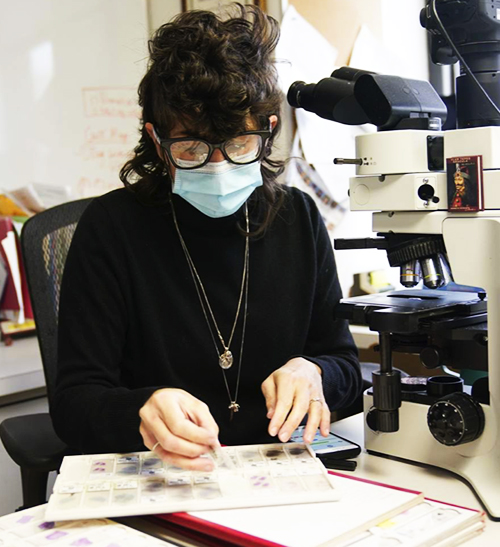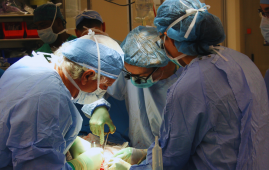

Payers are unwilling to reimburse for autopsies despite the fact that autopsies are a proven way to learn more about new diseases and how they attack the human body Each year, less money is spent by Medicare and private health insurers on autopsies. However, autopsies regularly provide pathologists with relevant, clinically useful information about exact
causes of death and other elements of disease in the deceased. Some diseases cannot be identified any other way but by autopsy. And data from autopsies have helped developers bring critical new medical laboratory tests, therapeutic drugs, and vaccines to market.
Thus, the healthcare system is losing valuable research that would bring a better understanding of diseases and processes in the body that contribute to poor health and death. This is true with COVID-19. Autopsy results have already provided revelations into how the SARS-CoV-2 coronavirus affects the body and yielded clues that are helping pathologists combat the illness.
Looking Closely at Death from COVID-19
“You can’t treat what you don’t know about,” Alex Williamson, MD, an anatomic/clinical/pediatric/forensic pathologist at Northwell Health in New York and Associate Professor of Pathology at Zucker School of Medicine at Hofstra/Northwell, told the Associated Press (AP), ABC News reported in “The Autopsy, a Fading Practice, Revealed Secrets of COVID-19.”
“Many lives have been saved by looking closely at someone’s death,” he added.
Autopsies performed on deceased patients could help clarify why there is such a wide array of symptoms for those affected by COVID-19 and provide details that cannot be detected in living patients.
For example, autopsies completed early in the pandemic confirmed that the SARS-CoV-2 coronavirus causes respiratory disease and that extended use of ventilators could cause considerable damage to the lungs, the AP article noted. This discovery led physicians to re-evaluate how ventilators should be used on COVID-19 patients.
The AP story also stated that pathologists learned the SARS-CoV-2 coronavirus may spread the illness to other organs such as the heart, brain, liver, kidneys, and colon.
Through autopsies, COVID-19 patients also were discovered to have dramatic blood clotting issues in almost every organ of the body and micro-clotting in the lungs.
“The clotting was not only in the large vessels but also in the smaller vessels,” said Amy Rapkiewicz, MD, an anatomic and forensic pathologist, Chair of the Department of Pathology at NYU Langone Medical Center, and Associate Professor, Department of Pathology at NYU Long Island School of Medicine, in an Advisory Board Daily Briefing. “And this was dramatic because though we might have expected it in the lungs, we found it in almost every organ that we looked at in our autopsy study.”
Doctors are now exploring whether blood thinners should be utilized to prevent blood clots from forming in COVID-19 patients.
Autopsies also have shown that some COVID-19 patients are dying from secondary bacterial infections that appear alongside the disease. This discovery may help doctors understand lingering symptoms that plague some coronavirus patients.
“What you see at autopsy represents an effective catalog of the injury that occurs in patients who have COVID,” pathologist Stephen Hewitt, MD, Ph.D., associate research physician, Laboratory of Pathology, and head of the Experimental Pathology Laboratory at the National Cancer Institute Center for Cancer Research, told Undark. “And it gives you an understanding and a basis to try and forecast forward what we’re going to see in post-COVID syndrome.”
Shortage in Funding and Forensic Pathologists
With advances in technology, clinical laboratory testing, and imaging scans, autopsies are performed much less than they were in the past. In the 1950s, autopsies were performed on about half of the patients who passed away in hospital situations, but now that number is somewhere between only five and 11%, ABC News reported.
At this time, hospitals are not required to provide autopsy services and the costs to perform autopsies are often not covered by private or government insurance.
“As medicine has become closer to the bottom line, community hospitals don’t want to perform the autopsies because they’re not getting any functional reimbursement for them,” Hewitt told Undark.
Hospitals usually have to cover costs associated with autopsies themselves or pass those expenditures along to the deceased patient’s family. Autopsies typically cost anywhere from $1,000 to $5,000 per patient, Undark reported.
“When you consider there’s no reimbursement for this, it’s almost an altruistic practice,” Billie Fyfe-Kirschner, MD, a pathologist with Rutgers University, told the Associated Press. “It’s vitally important, but we don’t have to fund it.”
According to the AP, the US faces a critical shortage of forensic pathologists who are trained to perform autopsies. It is estimated, AP reported, that “the US has only a few hundred forensic pathologists but could use several thousand—and less than one in 100 graduating medical school students enters the profession each year.”
Clearly, pathologists have much to offer in the field of autopsies. Autopsying patients who died from COVID-19 may provide data that could greatly affect treatment for those diagnosed with the disease and improve patient outcomes overall.
more recommended stories
 Texas Medical Board Releases Abortion Training for Physicians
Texas Medical Board Releases Abortion Training for PhysiciansKey Takeaways Texas Medical Board has.
 Safer Allogeneic Stem Cell Transplants with Treg Therapy
Safer Allogeneic Stem Cell Transplants with Treg TherapyA new preclinical study from the.
 Autoimmune Disorders: ADA2 as a Therapeutic Target
Autoimmune Disorders: ADA2 as a Therapeutic TargetAdenosine deaminase 2 (ADA2) has emerged.
 Kaempferol: A Breakthrough in Allergy Management
Kaempferol: A Breakthrough in Allergy ManagementKaempferol, a dietary flavonoid found in.
 Early Milk Cereal Drinks May Spur Infant Weight Gain
Early Milk Cereal Drinks May Spur Infant Weight GainNew research published in Acta Paediatrica.
 TaVNS: A Breakthrough for Chronic Insomnia Treatment
TaVNS: A Breakthrough for Chronic Insomnia TreatmentA recent study conducted by the.
 First-of-Its-Kind Gene-Edited Pig Kidney: Towana’s New Life
First-of-Its-Kind Gene-Edited Pig Kidney: Towana’s New LifeSurgeons at NYU Langone Health have.
 Just-in-Time Training Improves Success & Patient Safety
Just-in-Time Training Improves Success & Patient SafetyA study published in The BMJ.
 ChatGPT Excels in Medical Summaries, Lacks Field-Specific Relevance
ChatGPT Excels in Medical Summaries, Lacks Field-Specific RelevanceIn a recent study published in.
 Study finds automated decision minimizes high-risk medicine combinations in ICU patients
Study finds automated decision minimizes high-risk medicine combinations in ICU patientsA multicenter study coordinated by Amsterdam.

Leave a Comment